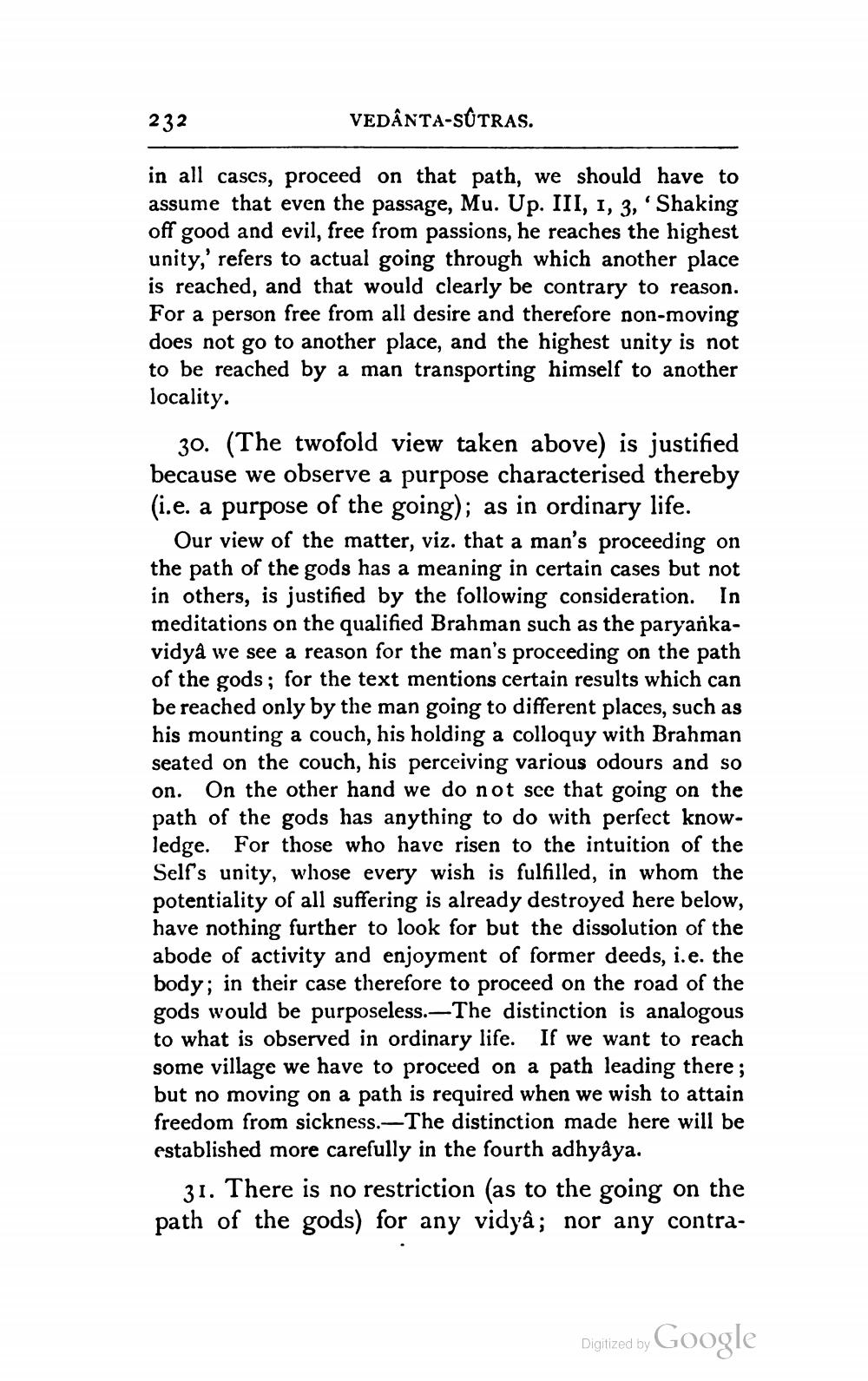________________
232
VEDÂNTA-SÛTRAS.
in all cases, proceed on that path, we should have to assume that even the passage, Mu. Up. III, 1, 3, 'Shaking off good and evil, free from passions, he reaches the highest unity,' refers to actual going through which another place is reached, and that would clearly be contrary to reason. For a person free from all desire and therefore non-moving does not go to another place, and the highest unity is not to be reached by a man transporting himself to another locality.
30. (The twofold view taken above) is justified because we observe a purpose characterised thereby (i.e. a purpose of the going); as in ordinary life.
Our view of the matter, viz. that a man's proceeding on the path of the gods has a meaning in certain cases but not in others, is justified by the following consideration. In meditations on the qualified Brahman such as the paryankavidya we see a reason for the man's proceeding on the path of the gods; for the text mentions certain results which can be reached only by the man going to different places, such as his mounting a couch, his holding a colloquy with Brahman seated on the couch, his perceiving various odours and so on. On the other hand we do not see that going on the path of the gods has anything to do with perfect knowledge. For those who have risen to the intuition of the Selfs unity, whose every wish is fulfilled, in whom the potentiality of all suffering is already destroyed here below, have nothing further to look for but the dissolution of the abode of activity and enjoyment of former deeds, i.e. the body; in their case therefore to proceed on the road of the gods would be purposeless. The distinction is analogous to what is observed in ordinary life. If we want to reach some village we have to proceed on a path leading there; but no moving on a path is required when we wish to attain freedom from sickness.-The distinction made here will be established more carefully in the fourth adhyâya.
31. There is no restriction (as to the going on the path of the gods) for any vidyâ; nor any contra
Digitized by Google




